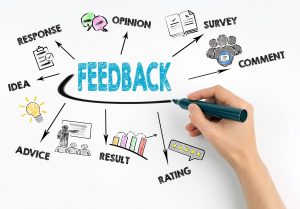The most effective leaders are all alike in one crucial way: they all have a high degree of what has come to be known as emotional intelligence. It’s not that IQ and technical skills are irrelevant. They do matter, but they are the entry-level requirements for executive positions. Emotional intelligence is absolutely necessary in leadership. Without it, a person can have the best training in the world, an incisive, analytical mind, and an endless supply of smart ideas, but he still won’t make a great leader.
Emotional intelligence is widely known to be a key component of effective leadership. The ability to be perceptively in tune with yourself and your emotions, as well as having sound situational awareness can be a powerful tool for leading a team. The act of knowing, understanding, and responding to emotions, overcoming stress in the moment, and being aware of how your words and actions affect others, is described as emotional intelligence. Emotional intelligence for leadership can consist of these five attributes: self-awareness, self-management, empathy, relationship management, and effective communication.
A leader lacking in emotional intelligence is not able to effectively gauge the needs, wants and expectations of those they lead. Leaders who react from their emotions without filtering them can create mistrust amongst their staff and can seriously jeopardize their working relationships. Reacting with erratic emotions can be detrimental to overall culture, attitudes and positive feelings toward the company and the mission. Good leaders must be self-aware and understand how their verbal and non-verbal communication can affect the team.
To help understand the emotional intelligence competencies required for effective leadership, here are the five attributes of emotional intelligence:
Self-Assessment: This can be defined as having the ability to recognize one’s own emotions, strengths, weaknesses, values and drives and understanding their impact on others. Without reflection we cannot truly understand who we are, why we make certain decisions, what we are good at, and where we fall short. In order to reach your maximum potential, you must be confident in who you are, understanding the good with the bad. Those that have a strong understanding of who they are and what they want to work on can improve themselves on a regular basis.
Self-regulation: Also known as discipline. This involves controlling or redirecting our disruptive emotions and adapting to change circumstances in order to keep the team moving in a positive direction. Leaders can’t afford to lose their cool. Being calm is contagious, as is panic. When you take on a leadership role you can no longer afford to panic when things get stressful. When you stay calm and positive you can think and communicate more clearly with your team.
Empathy and Compassion: Empathy is the ability to put yourself in someone else’s shoes and understand how they may feel or react to a certain situation. When one has empathy, the capacity to feel compassion is open. The emotion that we feel in response to suffering that motivates a desire to help. The more we can relate to others, the better we will become at understanding what motivates or upsets them.
Relationship Management: You can’t make deep connections with others if you’re distracted. Many of us have families, other obligations, and a crazy to-do list, but building and maintaining healthy and productive relationships is essential to one’s ability to gain higher emotional intelligence. You must have the ability to communicate effectively and properly manage relationships in order to move a team of people in a desired direction.
Effective Communication: In sealing a team, you have to do three things flawlessly to be an effective operator and team member: Move, shoot, and communicate. Communication being of the utmost importance. Effective communication is 7% of the words we say and 93% of the tone and body language. Misunderstandings and lack of communication are usually the basis of problems between most people. Failing to communicate effectively in a workplace leads to frustration, bitterness, and confusion among employees. Effective communication can eliminate obstacles and encourage stronger workplace relationships. When employees know their role within a company and understand how they benefit the overall direction and vision, there is a sense of value and accomplishment. Good communication results in alignment and a shared sense of purpose.
Emotional intelligence is a powerful tool critical for exceeding goals, improving critical work relationships, and creating a healthy, productive workplace and organizational culture.

